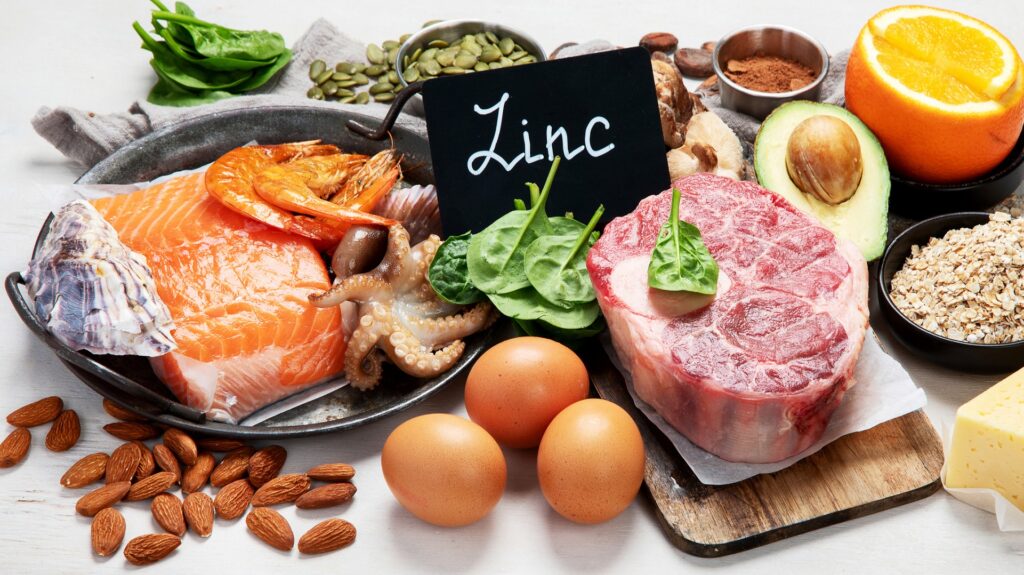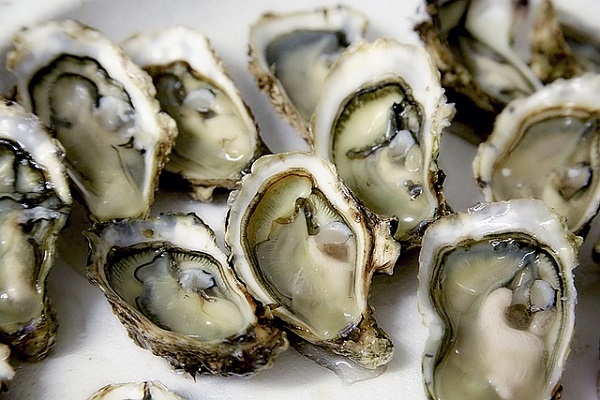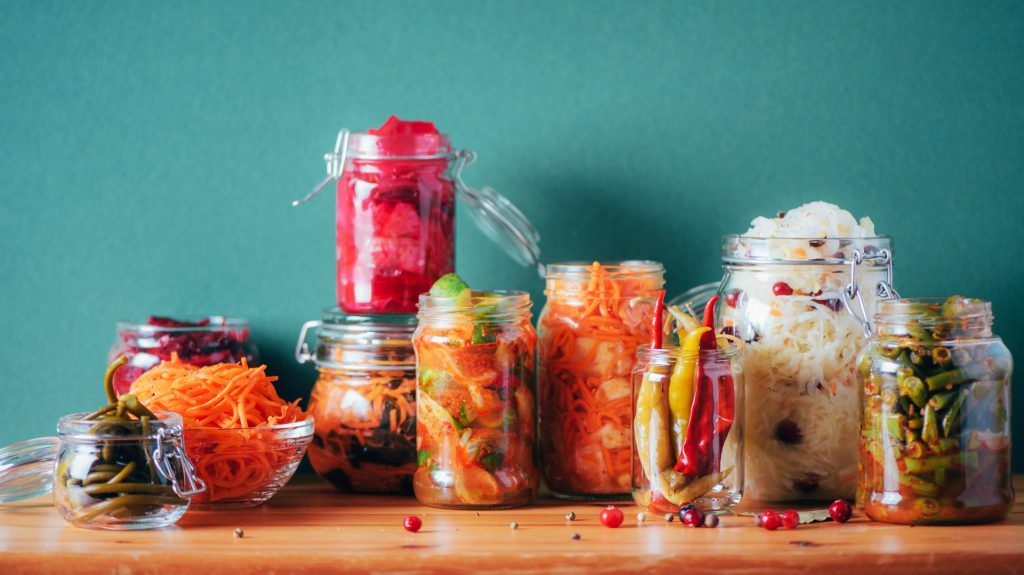Zinc is a crucial mineral for your overall health, playing a vital role in everything from immune function to skin health and even DNA synthesis. A deficiency in zinc can lead to a range of issues, including weakened immunity, hair loss, and even poor wound healing. Thankfully, you can easily boost your zinc intake by incorporating certain foods high in zinc into your diet. This article highlights the best foods to combat zinc deficiency naturally. At Eat For Life, we can help you create a personalized nutrition plan to boost your zinc levels and support your overall health.
Foods High in Zinc: The Top 7 Zinc-Rich Foods
Zinc is a mineral that can be found in many everyday foods. Here’s a look at seven top foods high in zinc that can help you fight a zinc deficiency:
Oysters: The Ultimate Source of Zinc
Oysters are often considered the best food for increasing zinc levels, offering an incredibly high amount of zinc in just one serving. Just six medium oysters contain more than 30 mg of zinc, which is over 200% of the recommended daily intake (RDI) for adults. This makes oysters the undisputed champion when it comes to foods high in zinc. However, I don’t initially recommend shellfish with zinc deficiency because it may cause an adverse reaction.
Red Meat: A Zinc Powerhouse
Red meat is a great source of zinc, particularly lamb and beef. A substantial amount of the RDI is provided by the 7 mg of zinc in a 3-ounce serving of cooked beef. Red meat not only supports your zinc needs but is also packed with protein, iron, and other essential nutrients.
Pumpkin Seeds: A Plant-Based Zinc Source
If you’re looking for a plant-based alternative, pumpkin seeds are a fantastic choice. Just one ounce (about a small handful) of pumpkin seeds contains 2.2 mg of zinc, making them a great option for vegetarians and vegans. These tiny seeds also provide healthy fats and antioxidants, boosting your overall nutrition.
Chickpeas: A Versatile Zinc-Rich Food
Chickpeas, commonly found in Mediterranean and Middle Eastern cuisines, are another excellent plant-based source of zinc. One cup of cooked chickpeas offers about 2.5 mg of zinc. Chickpeas are not only high in zinc but also packed with fiber and protein, making them a great addition to salads, stews, or hummus. At Eat For Life, we can help you incorporate nutrient-rich foods like chickpeas into your diet for optimal health. Keep in mind that legumes are also high in copper, so it’s best to check your copper levels before using chickpeas as a zinc source.
Walnuts: Zinc in Every Crunch
Walnuts are not just a tasty snack; they also pack a decent amount of zinc. A 1-ounce serving of cashews contains about 1.6 mg of zinc. These nuts are also rich in heart-healthy fats and can easily be added to dishes, salads, or enjoyed on their own. Keep in mind that nuts are high in copper, so it’s best to check your copper levels before using walnuts as a zinc source.
Lentils: A Zinc-Rich Legume for Your Diet
Lentils are another legume that provides a solid zinc boost. A cup of cooked lentils offers 2.5 mg of zinc, and they’re also an excellent source of plant-based protein and fiber. Add lentils to soups, stews, or salads for an easy and nutritious zinc source. Keep in mind that legumes are also high in copper, so it’s best to check your copper levels before using chickpeas as a zinc source.
Spirulina: A Blue-Green Algae with Zinc Benefits
While spirulina may not be as rich in zinc as some of the other foods listed, it still offers a good amount of this essential mineral. One cup of cooked spinach contains about 1.4 mg of zinc, along with a host of other nutrients like vitamins A, C, and K. Adding spirulina to your diet can help round out your zinc intake.
How to Boost Zinc Absorption from Foods
While consuming foods high in zinc is essential, it’s also important to maximize your body’s ability to absorb zinc. Here are a few tips to ensure better zinc absorption:
- Pair Zinc-Rich Foods with Protein: Protein-rich foods like meat, fish, and legumes help your body absorb zinc more effectively. Consider combining zinc-rich foods with a protein source for maximum benefits.
- Avoid Excessive Phytates: Phytates, found in whole grains and legumes, can inhibit zinc absorption. These foods can be soaked, sprouted, or fermented to increase zinc bioavailability and lower phytate levels.
- Limit Calcium and Iron Supplements: While these minerals are important for your health, taking them in excess can interfere with zinc absorption. Try to space out zinc and calcium/iron supplements throughout the day for optimal absorption.
Conclusion: Zinc-Rich Foods for Optimal Health
Incorporating foods high in zinc into your diet is one of the best ways to combat zinc deficiency naturally. From red meat to plant-based options like pumpkin seeds, there’s a wide variety of zinc-rich foods to suit every dietary preference. Whether you’re looking to boost your immune system, improve skin health, or enhance your overall well-being, adding these foods to your meals can provide numerous health benefits. At Eat For Life, we can help you incorporate zinc-rich foods into your diet for optimal health—contact us today to learn more!
Keep in mind that zinc protocols must be undertaken with extreme care and knowledge of detox responses, current health status, and history, as well as age, weight, and height. By following the tips outlined above, you can help your body get the zinc it needs to thrive. The key to maintaining good health and preventing deficiencies is to eat a variety of nutrient-rich foods and keep your diet balanced.









